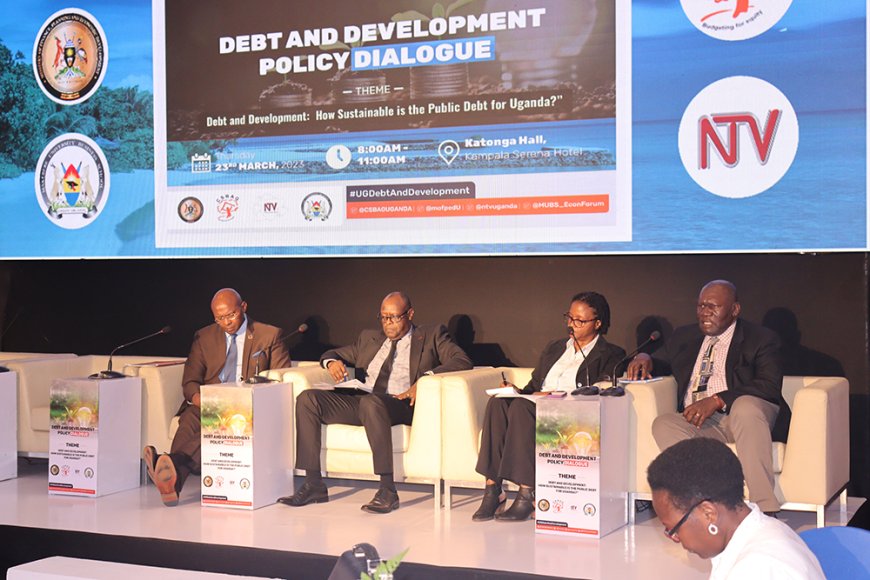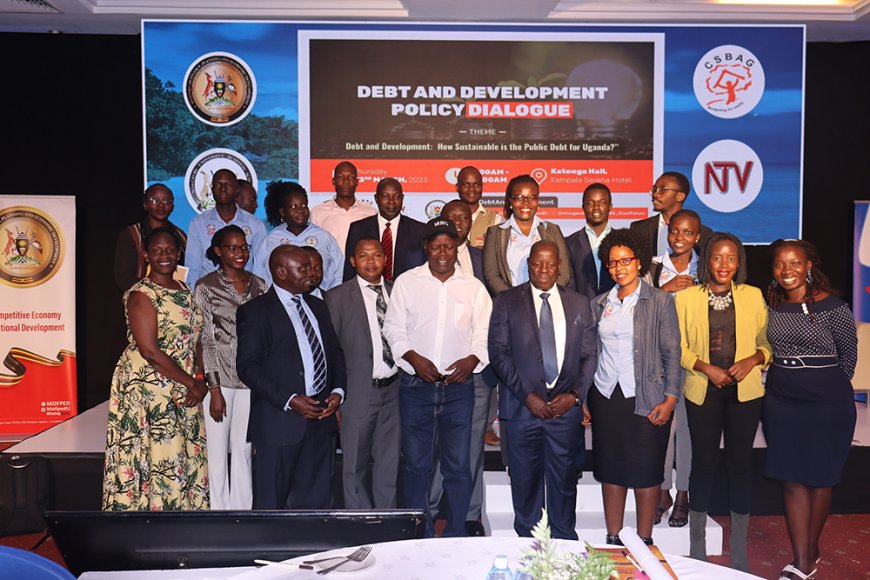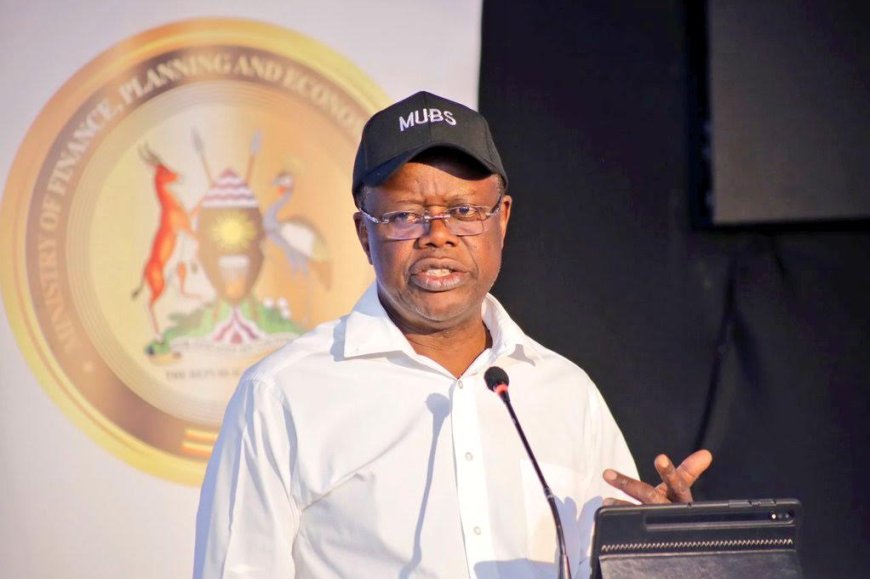Debt and development: Uganda’s debt is manageable and sustainable, experts reveal
In his opening remarks, Ramathan Ggoobi Permanent Secretary and Secretary to the Treasury (PSST), Ministry of Finance, Planning and Economic Development revealed that the public debt is projected to decrease over the medium term on account of increased revenues (DRMS) and through fiscal consolidation efforts.
KAMPALA - Makerere University Business School (MUBS) in conjunction with the Ministry of Finance and Economic Development held a hybrid (both physical and online) Annual Debt and Development Policy Dialogue on 23rd March 2023 at Serena Hotel Kampala, where they discussed the theme, “Debt and development: how sustainable is the public debt for Uganda?”. Many stakeholders ranging from the Academia, Civil Society, Politicians, Civil servants from Ministries, Agencies and Departments to mention but a few attended the dialogue.
In his opening remarks, Ramathan Ggoobi Permanent Secretary and Secretary to the Treasury (PSST), Ministry of Finance, Planning and Economic Development revealed that the public debt is projected to decrease over the medium term on account of increased revenues (DRMS) and through fiscal consolidation efforts. He added that going forward, government will prioritize concessional financing and revealed that government is undertaking initiatives to grow exports and imports substitution in order to sustain the country’s debt burden.
The PSST says GDP is not a government resource yet it is government to pay back. According to him, Uganda invests in Human Capital Development Programs which claim the largest share of the discretionary budget (28%), education, safe water, health, etc although there is need to double the money because Uganda is a young country with half of the population children below 14 years. He says it is disproportionally a different story perhaps from the older population although the investment is not observable.
Mr. Ramathan Ggoobi also highlighted corruption as one of the reasons Uganda is falling short in sustaining her debt burden.
“We should stop talking and devise practical solutions. Decentralization does not fight corruption but perpetuates it. Also, salary increments without contractual factors worked on, tied corruption institutions, democracy, social accountability will never fight corruption,” Ggoobi lamented.
However, the PSST highlighted the following mechanisms below to fight corruption:
1. E-Government to ensure there is reduction on public officials having discretionary power.
2. Procurement reforms. He says procurement should be automated.
3. The Financial Management System should be automated.
4. Special forensic audit work especially if the recommendations are implemented.
5. Effective budget financing.
6. Stop illicit financial flows. He said most corrupt people have stopped using the banks.
7. Appointment of women in trust demanding positions will work because they are risk averse and have more social pressures against taboo though society condemns them.
Meanwhile, Prof. Waswa Balunywa, Principal MUBS in his opening remarks called for improvement in exports, increase in domestic revenue mobilization and reduction of regulations affecting revenue generation in order to sustain the debt burden.
“If we do not increase the tax collection capacity, then we cannot manage debt,” Prof. Balunywa noted.
Prof. Balunwa says Uganda spends 6Billion USD on imports, earns 2Billion USD from exports and 1Billion USD from Kyeyo. He wants the money spent to import goods be channeled into production.
“Can we look at trade in the region. Why does Kenya not take our maize yet we are known as the food basket and have the capacity to feed the whole region,” he wondered. He says the failure of Africa to unite has caused a global trade imbalance and because of ideological issues, we may never export.
“The aspect of the inability to compete globally through exports is a problem because African products cannot make it to some parts of the globe because of quality,” he revealed.
In his closing remarks, Prof. Waswa Balunywa, Principal of MUBS wondered what we are using the debt for or it is being put to social use. He says these are some of the issues that need to be thought about, researched in order to find out the truth. He also reminded the audience of the first Economics lecture that “Banks Create Credit” but wondered where we are putting our money and who is creating our credit. This also needs research, he noted.
Lastly, Prof. Balunywa says solutions lie in Africa coming together through collective action.
“Debt sustainability is simply about you being able to get revenue to pay back,” Prof. Waswa Balunywa concluded.
Meanwhile, Julius Mukunda, CSBAG Executive Director said special attention should be put on how the money borrowed is used. He called for effective debt planning and annual dialogue on Debt Issues.
Yasin Mayanja, Principal Economist Ministry of Finance, Planning and Economic Development revealed that within sub-Saharan Africa, DRC, Tanzania, Uganda are among the countries with lower debt to GDP ratios.
One of the panelists Stephen Kaboyo, Managing Director Alpha Capital Partners equated Uganda’s debt situation to a stage 2 cancer patient and called upon us as a country to avoid slipping over into the high-risk area. He says there is a need for a holistic approach as we put our house in order because all eyes around the world are on indebted countries which reflects badly on us as an investment destination.




































































































